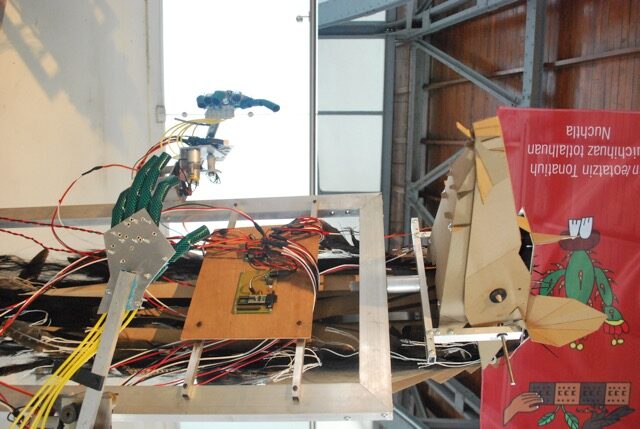FREITAG: JUN 25. 2021, 19:45–20:15
Recent art historical studies have delved into notions of futurity as it relates to indigenous approaches to environmental destruction in the face of ongoing colonial oppression. Building on the concept of indigenous futures, this presentation focuses on the Kichwa artist Manuel Amaru Cholango and Nahua Fernando Palma’s decolonial critique of technology. Since the 1990s and in response to the quincentennial celebration of the “discovery” of America in 1992, these two artists have developed an oeuvre that criticizes the instrumentalization of modern technology for the exploitation of the earth and the perpetuation of colonialism. By advancing the notion of Indigenous technology, these artists bring to bear other ways of relating to the environment that can help create, once again, the possibility of the future.
Sara Garzón is a curator and writer based in New York City. As a doctoral candidate in art history at Cornell University, Sara specializes in modern and contemporary Latin American art focusing specifically on decoloniality, temporality and indigenous ecocriticism. Before attending Cornell, Sara received an M.A in Art History from the Institute of Fine Arts, New York University. Sara has worked at the Metropolitan Museum of Art as the Jane and Morgan Whitney Fellow (2020-2021), as Audience Engagement Associate at the Brooklyn Museum, and before that was the Lifchez-Stronach curatorial Intern also at the Met.
Sara’s writings have appeared in Hemisphere: Visual Cultures of the Americas, Anamesa: An Interdisciplinary Journal, DASartes Magazine in Brazil, Ocula Magazine in Hong Kong, and Hyperallergic. Her article “Manuel Amaru Cholango: Decolonizing Technology and the Construction of Indigenous Futures,” was included in a special issue of Artson decolonizing contemporary Latin American art (December 2019). This article was awarded Best Essay in Visual Culture Studies 2020 by the Latin American Studies Association (LASA).
Bildcredits: Fernando Palma, Huehuecoyotl (coyote robot), 2013. Aluminum, wood, cardboard, tires, radio players, and recycled materials. Image courtesy of the artist.
